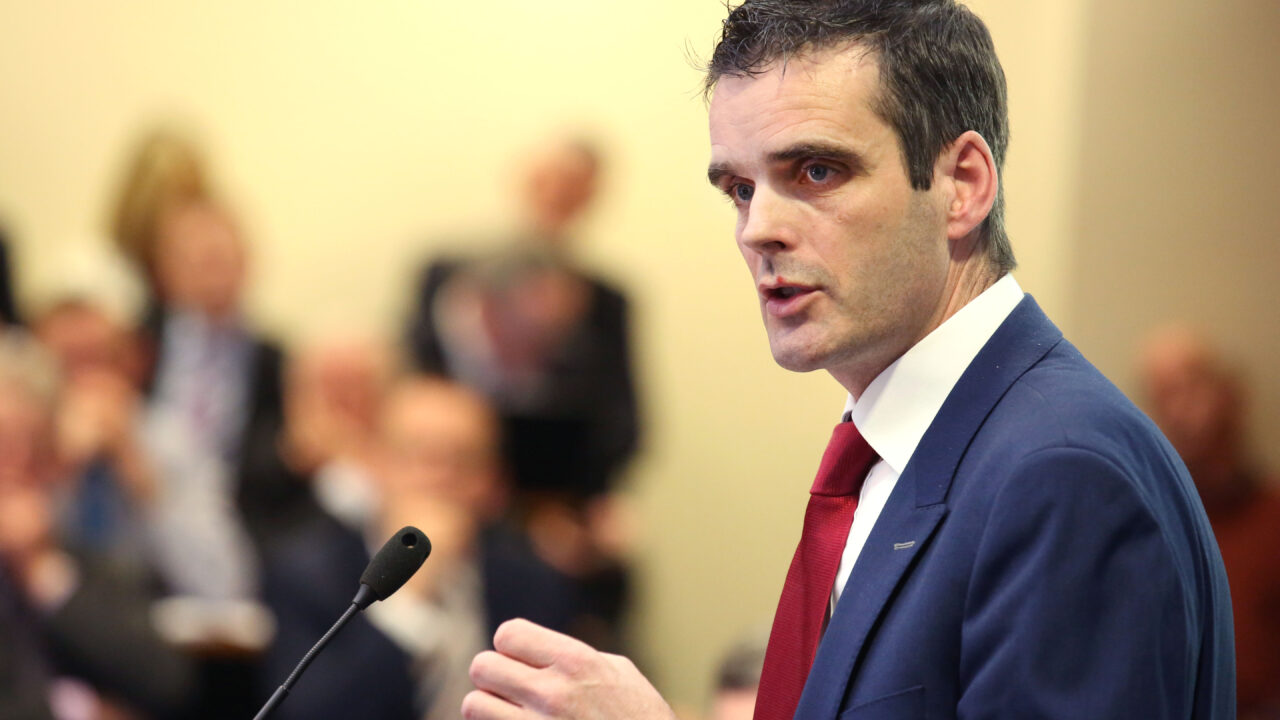The Government must deliver on short-term measures that will directly support farm incomes and longer term measures to tackle income volatility in this October’s budget, IFA President Joe Healy said today at the launch of IFA’s Pre-Budget Submission.
The IFA President said, a farm income crisis is being experienced in many sectors in Ireland in 2016, caused by a combination of low product prices, a bad spring, and negative political events.
“Farm families are under huge pressure as cashflow tightens and the viability of their family farm is put at risk,” he said.
In addition, he said the recent vote by the UK to leave the EU has created major uncertainty and immediate price challenges.
“Budget 2017 provides an opportunity for the Government to take funding and taxation decisions that will directly address the farm income difficulties being experienced and underpin the longer-term development of the sector”.
Expenditure priorities for farm schemes in Budget 2017:
- Funding of €250m for agri-environment schemes in Budget 2017, with full payments for all GLAS, AEOS and organic scheme participants.
- Introduction of a targeted sheep scheme of €25m, with minimal costs and bureaucracy on farmers, to maximise its benefits.
- Increased funding for the ANC scheme, commencing the process of reversing the cuts to ANC payments in past budgets.
- Immediate reopening of the Beef Data and Genomic Programme to allow new participants, with additional funding of €25m to increase support for the suckler cow.
- A funding allocation of €50m to the TAMS II programme to meet the demand across all farming sectors for on-farm investment
The IFA President said, in October’s budget, the Government must deliver on its funding commitment to the Rural Development Programme.
“The Government commitment to increase funding to the ANCs by €25m in 2018 must be brought forward by a year, as this funding is urgently needed to support farm incomes in the most marginal areas. In advance of the full review of the ANCs, which will take place during 2017, IFA is looking for a one year increase in the maximum number of hectares on which ANC payments can be made.”
IFA’s taxation priorities for Budget 2017:
- To maximise the number of farmers using income averaging, the current restrictions on eligibility where the farmer’s spouse is in self-employment must be removed
- Income averaging to be amended to provide extra flexibility in a year when income falls significantly.
- Earned Income Tax Credit to be increased to the same level as the PAYE credit in 2017.
- Extension of CGT Farm Restructuring Relief beyond end 2016.
- Taxation incentives for investment in energy efficient equipment and diversification into renewable energy.
IFA Farm Business Chairman, Martin Stapleton said, Budget 2017 provides an opportunity to address a number of challenges in farming through the taxation system, including the introduction of an individualised measure to tackle income volatility, the removal of discrimination between self-employed and employees in the income tax system, support for on-farm energy efficient investment, and continued support for intergenerational transfer and farm restructuring.
“Income volatility is a real long-term challenge for farming. While income averaging provides a useful mechanism for tackling income volatility through the taxation system, the barriers preventing more farmers from using it must be removed as a priority.
“In addition, a more targeted and individualised volatility scheme is required. This mechanism should provide an effective response, and ease cashflow pressures on farmers, in a year where there is a major drop in incomes,” he said.
Income averaging proposal
IFA is proposing that a farmer on income averaging is permitted, in a year when farm income falls significantly, to pay the tax due for a single year only on the actual income earned in that year, rather than the average tax due arising from five years’ income.
The deferred tax in that year would be carried forward and paid over a three year period. It is proposed that, over a five year period, the farmer would have the option of using his actual income as the basis for his tax payment on two occasions.
Healy said, last October’s budget finally saw the first steps in removing the discrimination of the self-employed in the income tax system with the introduction of the Earned Income Tax Credit.
“We recognise the commitment in the Programme for Government to increase this to match the PAYE credit, by 2018. However, IFA believes that the Government should equalise the credits fully by 2017, which would give a direct cashflow boost to farmers and other self-employed.”
